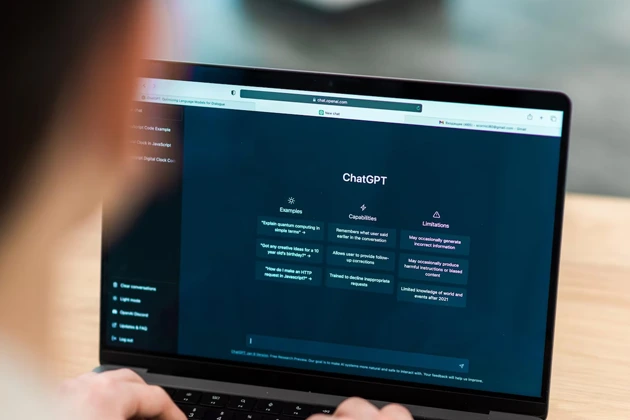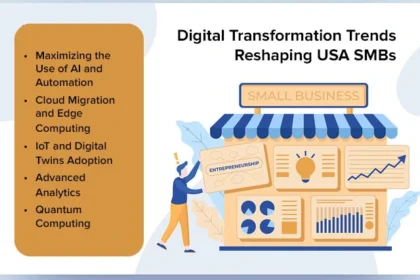Artificial intelligence (AI) is rapidly reshaping the way we interact with technology, and tools like ChatGPT are at the forefront of this revolution. These AI-powered systems are making human-computer interactions more seamless, intelligent, and accessible than ever before. Let’s dive into what makes AI like ChatGPT so transformative and explore its impact on our daily lives.
Introduction to AI and ChatGPT
Artificial intelligence refers to the simulation of human intelligence by machines. Through algorithms, large data sets, and computational power, AI can perform tasks such as learning, problem-solving, and decision-making. It’s the backbone of technologies like self-driving cars, voice assistants, and, of course, ChatGPT.
ChatGPT, developed by OpenAI, is a cutting-edge language model based on the Generative Pre-trained Transformer (GPT) architecture. It is designed to process and generate human-like text, enabling natural conversations, content creation, and problem-solving with remarkable accuracy and fluency.
How AI Like ChatGPT Works
AI like ChatGPT operates through a combination of advanced technologies, primarily relying on Natural Language Processing (NLP) and machine learning. NLP allows ChatGPT to understand, interpret, and generate human-like text by analyzing language patterns, context, and syntax. The backbone of ChatGPT is the Generative Pre-trained Transformer (GPT) architecture, which is trained on massive datasets to learn how language functions. During training, the model processes billions of text examples to develop an understanding of grammar, word relationships, and context. When a user inputs a query, ChatGPT uses this knowledge to generate a relevant, coherent response by predicting the next sequence of words. Machine learning further refines the model’s capabilities, enabling it to adapt to diverse user needs and improve over time. This combination of NLP and machine learning ensures ChatGPT is both versatile and highly effective, making it a powerful tool for conversation, content generation, and problem-solving.
Key Applications of ChatGPT in Everyday Life
-
Personal Assistance and Task Automation
ChatGPT can act as a virtual assistant, helping users organize their schedules, set reminders, and manage to-do lists. It excels at automating repetitive tasks, such as drafting emails, generating meeting notes, or summarizing documents, saving users valuable time. For businesses, it can handle routine customer service inquiries, allowing employees to focus on more complex tasks.
-
Education and Learning
Students and educators benefit significantly from ChatGPT’s ability to explain concepts clearly and provide instant answers to questions. It can assist in generating study material, solving complex math problems, or offering writing feedback. For lifelong learners, it serves as a personalized learning companion, offering insights on a wide range of topics in an accessible and understandable format.
-
Content Creation and Editing
Content creators use ChatGPT to brainstorm ideas, draft articles, and refine written pieces with ease. It can generate engaging headlines, write social media posts, or even help script videos. Moreover, its ability to edit and proofread text ensures high-quality content, making it an invaluable tool for writers and marketers.
-
Customer Support and Engagement
Businesses leverage ChatGPT for real-time customer support, enabling quick and accurate responses to customer queries. It can handle common issues, provide troubleshooting advice, and escalate complex problems to human agents when needed. This improves customer satisfaction and streamlines service processes.
-
Language Translation and Communication
ChatGPT supports multiple languages, breaking down communication barriers between individuals and businesses across the globe. It provides accurate translations and cultural nuances, making it easier for users to interact with diverse audiences. This application is particularly useful for international businesses and travelers.
-
Healthcare Assistance
In healthcare, ChatGPT serves as a preliminary support tool for patients, answering general health questions and guiding them to appropriate resources. It can assist medical professionals by summarizing patient histories, providing insights into medical literature, or generating reports. While it doesn’t replace doctors, it acts as a supplementary aid for healthcare processes.
-
Creative Writing and Storytelling
Writers and artists use ChatGPT to generate creative content such as stories, poems, and scripts. It provides inspiration, suggests plot ideas, and helps overcome writer’s block by offering fresh perspectives. Its ability to mimic various writing styles makes it a versatile tool for creative projects.
-
Job Applications and Resume Building
Job seekers utilize ChatGPT to craft compelling resumes and cover letters tailored to specific job roles. It offers suggestions for improving tone, formatting, and keywords to increase the chances of catching a recruiter’s attention. Additionally, it provides tips on interview preparation and answers to common job-related questions.
-
Entertainment and Gaming
For entertainment, ChatGPT can engage in casual conversations, generate trivia questions, or even act as a dungeon master for role-playing games. Gamers and storytellers use it to design intricate game narratives or brainstorm new gameplay ideas, enhancing creativity in interactive media.
-
Market Research and Data Analysis
ChatGPT assists businesses in conducting market research by summarizing reports, analyzing trends, and drafting presentations. It can also answer specific queries related to competitors, customer behavior, and emerging industry opportunities, providing actionable insights efficiently.
These diverse applications demonstrate how ChatGPT integrates seamlessly into everyday life, empowering individuals and businesses to achieve more with less effort.
Benefits of Using AI Like ChatGPT
AI like ChatGPT offers numerous benefits that enhance efficiency, accessibility, and innovation across various fields. One of its primary advantages is its ability to automate repetitive tasks, saving time and allowing users to focus on more creative or strategic activities. It boosts productivity by providing instant solutions, whether it’s drafting content, analyzing data, or managing customer interactions. ChatGPT also makes technology more inclusive by breaking language barriers and offering support for individuals with disabilities, such as helping those with hearing impairments communicate effectively. Its scalability enables businesses to handle large volumes of queries or tasks without requiring significant additional resources, making it a cost-effective solution. Furthermore, ChatGPT’s adaptability allows it to cater to a diverse range of industries, from healthcare and education to marketing and entertainment. By personalizing interactions and understanding context, it delivers highly relevant and user-friendly experiences. Ultimately, ChatGPT empowers both individuals and organizations to work smarter, not harder, driving innovation and convenience in today’s fast-paced world.
Limitations and Ethical Considerations
AI like ChatGPT, while revolutionary, has its imperfections and moral complexities. A prominent issue is its susceptibility to generating misleading or harmful content if misused, which underscores the need for better content moderation systems. The model’s reliance on pre-existing data introduces the risk of perpetuating biases, often without the user’s awareness, creating challenges in ensuring fairness. Additionally, there’s the concern of privacy—how secure is the information users input, and who controls access to it? In practical terms, ChatGPT can sometimes provide incorrect or overly confident answers, which could lead to misinformation if not carefully monitored. The increasing dependency on such tools might also erode essential human skills, like problem-solving and creative thinking, if they are overly relied upon. Another challenge lies in regulating its use; while some industries leverage it responsibly, others might exploit it for fraudulent or unethical purposes. Striking a balance between innovation and accountability will determine how society adapts to and benefits from this transformative technology. Without clear ethical guidelines and technical safeguards, these limitations could hinder the broader potential of AI to serve humanity positively.
AI like ChatGPT is redefining human interaction and productivity, offering endless possibilities across various domains. While challenges like data privacy and ethical concerns persist, the potential of this technology far outweighs its limitations. By embracing AI responsibly, we can unlock a future where technology and humanity work hand in hand to achieve remarkable outcomes.










